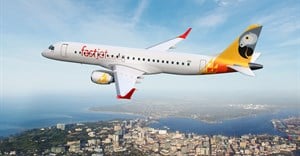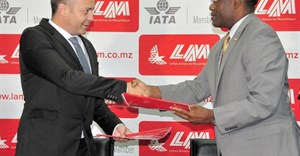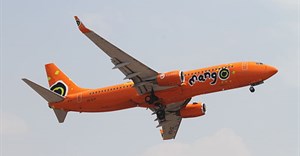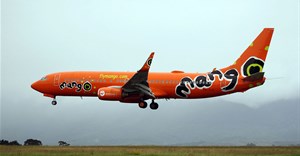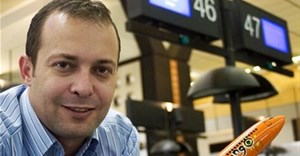
Subscribe & Follow
Jobs
- Junior Copywriter Sandton
- Junior DTP Operator / Graphic Designer Paarl
- Branch Manager Plettenberg Bay
- Programme Officer X2 Durban
- Lecturer - Education Studies and Psychology Durban
- Handyman Johannesburg
- Software Developer Bedfordview
- Intermediate Full Stack C# Developer Centurion
- Intermediate Full Stack C# Software Developer Centurion
- Junior Electrical and Mechanical Technician Villiers
Mango aims to be carbon neutral within a decade

The airline plans to engage employees, suppliers, guests and other role players within its value chain to encourage sustainability.
"Airlines burn fuel, and contribute approximately 2% of global greenhouse gas (GHG) emissions," says Mango CEO Nico Bezuidenhout. "It is an immovable fact and as a sector that drives economic growth across markets, ergo sustainability within the industry and assuming a leadership position becomes key. Despite the fact that on-going economic pressures in aviation may be cause for losing focus, Mango has elected to formally commit itself to sustainability and recognising its responsibility toward managing and mitigating its greenhouse gas emissions."
Every aspect to be measured
The airline is preparing for an audit process whereby every aspect of flight operations will be measured for its carbon footprint. "This means that we will commence measurement of our GHG emissions directly and indirectly related to our primary business activity - air transportation," says Bezuidenhout. This will be determined, monitored and reported annually in line with the GHG Protocol / ISO14064 and reported in terms of Scope 1 - direct emissions including fuel burn as a consequence of flight operations, Scope 2 - indirect emissions such as electricity use, and Scope 3 - indirect emissions from third party operations such as waste management and contractor activities.
Mango will initially seek to generate voluntary carbon credits. "Once we have a baseline, our mitigation strategy will be aligned to Mango's current starting-block initiatives such as the construction of sustainable vegetable gardens in communities, recycling and operational efficiencies. Our aim is sustainable development that will, where possible, further align with national developmental goals and include added benefits of job creation and skills development, among others," says Bezuidenhout, adding that ultimately solutions should be viable and add sustainable economic value.
Immediate reductions
The airline has already drafted a short term plan that will realise immediate reductions against Scope 1, 2 and 3 emissions to be implemented in parallel with the audit process, ultimately forming part of a larger sustainability management strategy.
The airline is partnering with the South African Mango Grower's Association and Subtropical Fruit Association to initiate a five year agricultural development and offset programme that will see micro-entrepreneur skill development, botany initiatives to improve crops such as topping greater yielding variants, mitigating fossil fuel energy dependency, educational initiatives through bursaries, and 41 000ha of agricultural land earmarked for emission reduction activities.






